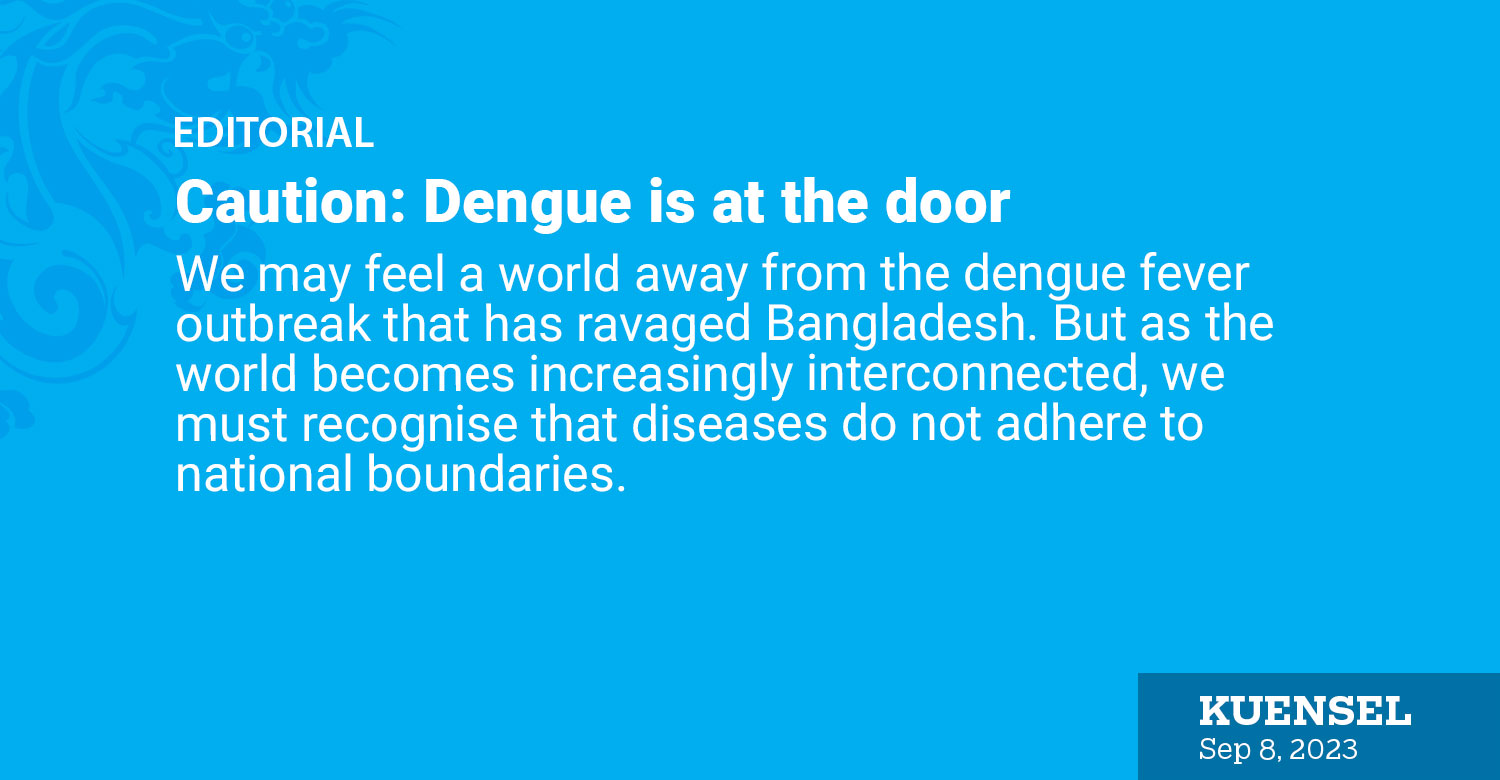We may feel a world away from the dengue fever outbreak that has ravaged Bangladesh. But as the world becomes increasingly interconnected, we must recognise that diseases do not adhere to national boundaries.
The alarming surge in dengue cases in our neighbouring country should serve as a stark wake-up call for Bhutan. We must not remain complacent in the face of this growing threat.
The World Health Organisation (WHO) has sounded the alarm; we cannot afford to ignore it. Dengue fever is a formidable adversary, and its recent resurgence in Bangladesh demands our immediate attention and collective action.
The WHO’s call for intensified efforts to control the mosquito vector population and minimise individual exposure is not a mere suggestion; it is a vital prescription for safeguarding the health and well-being of our nation.
The numbers coming out of Bangladesh are nothing short of alarming. In July alone, a staggering 43,854 cases of dengue fever were reported, along with 204 tragic deaths. These statistics represent a shocking 63 percent of the total cases and a heart-wrenching 62 percent of the fatalities for that month.
Such a sharp escalation in dengue cases is unprecedented when compared to the past five years, underscoring the magnitude of the ongoing crisis.
Why should Bhutan be deeply concerned about this outbreak in Bangladesh?
The answer is simple: mosquitoes do not need visas. Dengue knows no borders and respects no boundaries. The same vectors that have wreaked havoc in Bangladesh could easily find their way into our pristine valleys and serene towns of Bhutan.
Dengue fever thrives in tropical and subtropical climates, and our geographic proximity to affected regions makes us vulnerable.
The consequences of dengue cannot be underestimated. It is a debilitating and sometimes deadly disease transmitted through the bite of infected Aedes mosquitoes. Symptoms can range from a high fever and severe headache to excruciating joint and muscle pain, often referred to as “breakbone fever.” In severe cases, dengue can lead to dengue hemorrhagic fever, which can be fatal if not promptly treated.
Our healthcare infrastructure, while commendable, may not be equipped to handle a sudden surge in dengue cases, the way this threat is being treated.
We must be proactive in preventing its spread rather than merely reacting when it’s too late. Prevention is not only more cost-effective but also more humane. It is our moral responsibility to protect our citizens from the suffering and anguish that dengue brings.
What can we do in the face of this looming threat?
The answer lies in proactive and sustained efforts. First and foremost, we must intensify our mosquito control measures. This means not only eliminating breeding grounds for Aedes mosquitoes but also actively monitoring and controlling their populations. The government, in collaboration with local authorities and communities, should embark on comprehensive mosquito control campaigns.
Individual responsibility also plays a crucial role. Every Bhutanese citizen must be educated about dengue prevention. This includes the use of mosquito repellents, the wearing of long-sleeved clothing, and the implementation of household-level measures to deter mosquito-breeding.
It’s a collective effort, and each one of us must contribute to the fight against dengue.


